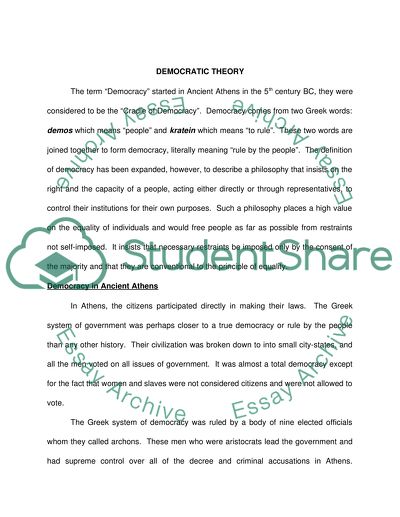Cite this document
(“Democratic Theory Essay Example | Topics and Well Written Essays - 2000 words”, n.d.)
Retrieved from https://studentshare.org/politics/1506629-democratic-theory
Retrieved from https://studentshare.org/politics/1506629-democratic-theory
(Democratic Theory Essay Example | Topics and Well Written Essays - 2000 Words)
https://studentshare.org/politics/1506629-democratic-theory.
https://studentshare.org/politics/1506629-democratic-theory.
“Democratic Theory Essay Example | Topics and Well Written Essays - 2000 Words”, n.d. https://studentshare.org/politics/1506629-democratic-theory.


